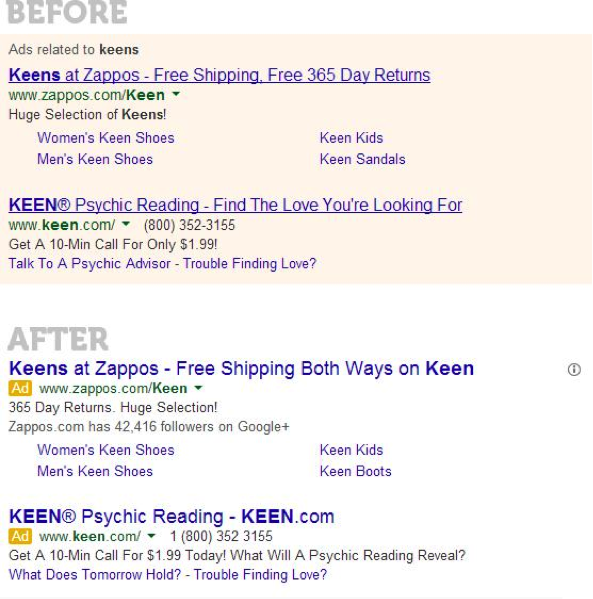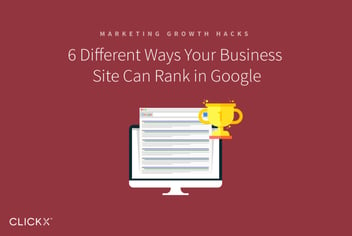How Google’s Redesign Affects Your Business

If you’ve searched for something on Google in the past few days and noticed something looked, well, a little different, your eyes didn’t deceive you. Google, in fact, did redesign its search pages last week, slightly tweaking the way it presents search results. Most significantly, Google has enhanced the size of its title tags. A few point increases in font size may not seem like much, but it could cut off some of your meta titles and could potentially create a big impact for your search engine click-through rate. Google also changed the way it presents ads in a drastic way, making them look more like organic search results. For those utilizing PPC, this could be a good change, but you might want more knowledge on why these changes occurred.

Not sure what to do with this information? Not to worry. With our tips, you’ll learn how you can adjust your search engine marketing content to coincide with Google’s fresh new makeover.
Changes to Organic Search
Google’s SERP changes weren’t exactly out of the blue. You may have noticed Google introduced a similar look to its mobile versions in 2013. As you probably saw, the results pages now look slightly more streamlined. Titles are larger for all search types—sites, photos, videos and more—and the underlines are nowhere to be found. Letters also have more smoothing to them. Google has shortened some titles to fit with the larger lettering.
If your company relies on search engine optimization for leads, you may be wondering how much this will affect your current plan. How will your meta titles and descriptions look? Will you need to readjust everything for your search engine marketing plan?
The short answer: Probably not.
The longer answer: You may need to reevaluate the way you craft your meta data now.
Because some meta titles are now being shortened with the larger text, you’ll need to reduce your titles’ lengths beforehand. For regular content pages, meta titles used to be 70 characters and descriptions used to be 160; now, meta titles should ideally be 60 characters and descriptions should be 155. Video titles used to align with typical search engine meta description information, too; now, though, titles optimally need to be 55 characters, and descriptions should be 105 to fit with the new look.
Does this mean you also need to revise all existing pages to fit these new guidelines? Not necessarily. You may only want to do this for your big pages that have important content and keywords. For smaller pages, like blog posts, you don’t necessarily have to readjust your meta data. Instead, just keep the new length requirements in mind for future posts. source
source
Changes to Paid Advertising
Google’s biggest change lies in its adjustments to advertising. In the past, PPC ads were outlined in an all-encompassing yellow box. Now, Google is defining ads by a small yellow box. To the casual viewer, PPC ads could be mistaken as organic search. Because of this, some even say the redesign even minimizes the blatancy of the ads, making users more likely to click through to your product.
Google may have made these changes only for aesthetic reasons. To establish the real reason, though, we have to dig a little deeper. By making ads seem less noticeable, Google begins to blur lines between PPC and organic search. For the user who doesn’t know as much about the web, or perhaps is just in a hurry and isn’t thinking about it, the small ad box could go unnoticed. This means more people will click on the PPC ads—and higher profits for Google.
Advertisers can also benefit. More click throughs on PPC can give companies more leads. If you’ve been considering PPC, you may benefit now more than ever, especially if you’re a small business.
What This Means For Your Business
Any change Google makes could put you a little on edge, but you don’t need to sweat over this new design. The changes create a much sleeker appearance, utilizing a horizontal approach to displaying search results that is more user-friendly. If anything, the new SERP design could even work to your benefit, especially if you’re a PPC advertiser. With a few small tweaks from here on out, your company’s search engine results are still safe in Google’s hands.




